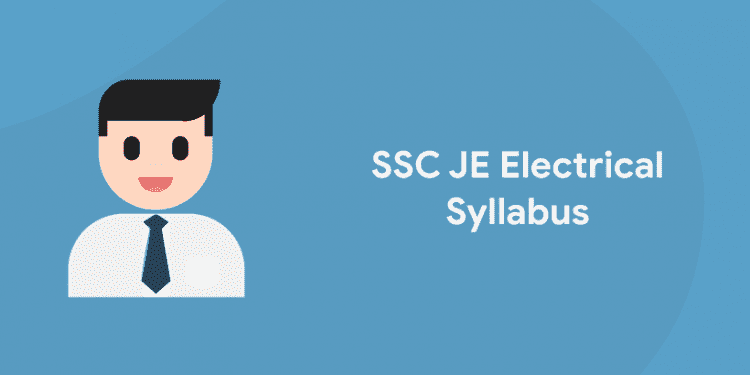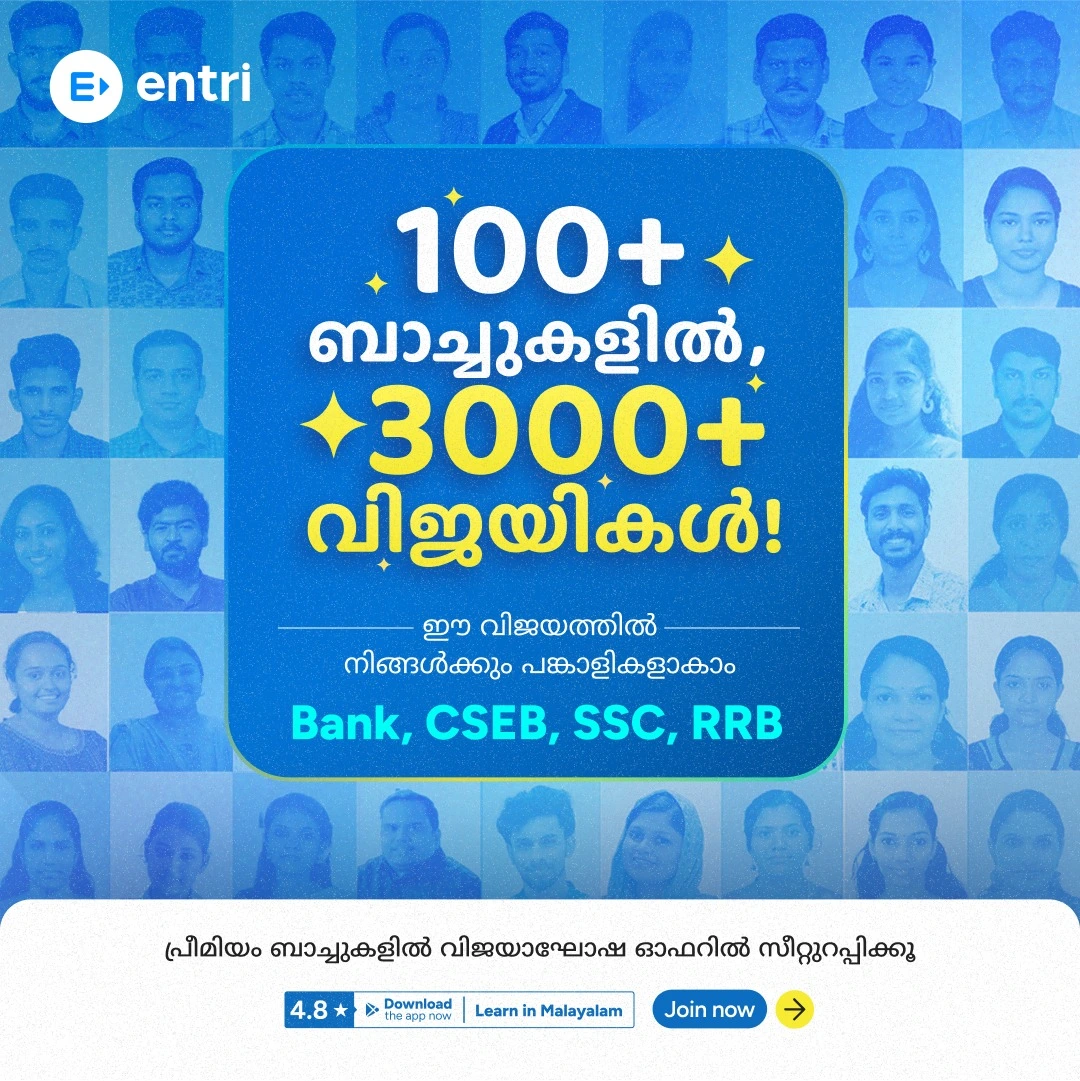Table of Contents
As per the last Staff Selection Commission(SSC) notification, an open competitive exam for recruitment of Junior Engineer (Civil, Mechanical, Electrical, and Quantity Surveying & Contracts) will be held for various Ministries/ Departments/ Organizations in the Government of India. The candidate must have a complete grasp of the SSC JE Electrical Syllabus before he attempts the exam. Here is a detailed overview of the SSC JE Electrical Syllabus.
SSC JE Electrical Syllabus 2023
The syllabus for SSC JE Exam covers the major three sections
- General Intelligence and Reasoning
- General Awareness
- Technical Subjects (Electrical)
SSC JE Electrical Detailed Syllabus
General Intelligence and Reasoning
- Analogies, Similarities
- Differences, Space Visualization
- Problem Solving, Analysis Judgment, Decision Making
- Visual Memory, Discrimination
- Observation, Relationship Concepts
- Arithmetical Reasoning, Verbal And Figure Classification
- Arithmetical Number Series Etc
- Abstract Ideas And Symbols And Their Relationships
- Arithmetical Computations
- Other Analytical Functions.
General Awareness
- Current Affairs
- India and its neighboring countries
- History
- Culture
- Geography
- Economic Science
- General Polity and Scientific Research, etc
Technical Subjects: Electrical
- Basic concepts
- Circuit law
- Magnetic Circuit
- AC Fundamentals
- Measurement and Measuring Instruments
- Electrical Machines
- Fractional Kilowatt Motors and single phase induction Motors
- Synchronous Machines.
- Generation
- Transmission and Distribution
- Estimation and Costing
- Utilization and Electrical Energy
Basic concepts: Concepts of resistance, inductance, capacitance, and various factors affecting them Concepts of current, voltage, power, energy and their units.
Circuit law: Kirchhoff’s law, Simple Circuit solution using network theorems.
Magnetic Circuit : Concepts of flux, mmf, reluctance, Different kinds of magnetic materials, Magnetic calculations for conductors of different configuration eg straight, circular, solenoidal, etc Electromagnetic induction, self and mutual induction
AC Fundamentals: Instantaneous, peak, RMS and average values of alternating waves, Representation of sinusoidal wave form, simple series and parallel AC Circuits consisting of RL and C, Resonance, Tank Circuit Poly Phase system – star and delta connection, 3 phase power, DC and sinusoidal response of R-Land R-C circuit
Measurement and measuring instruments: Measurement of power (1 phase and 3 phase, both active and re-active) and energy, 2 wattmeter method of 3 phase power measurement, Measurement of frequency and phase angle Ammeter and voltmeter (both moving oil and moving iron type), extension of range wattmeter, Multimeters, Megger, Energy meter AC Bridges Use of CRO, Signal Generator, CT, PT and their uses Earth Fault detection
Electrical Machines : (a) DC Machine – Construction, Basic Principles of DC motors and generators, their characteristics, speed control and starting of DC Motors Method of braking motor, Losses and efficiency of DC Machines (b) 1 phase and 3 phase transformers – Construction, Principles of operation, equivalent circuit, voltage regulation, OC and SC Tests, Losses and efficiency Effect of voltage, frequency and wave form on losses Parallel operation of 1 phase /3 phase transformers Auto transformers (c) 3 phase induction motors, rotating magnetic field, principle of operation, equivalent circuit, torque-speed characteristics, starting and speed control of 3 phase induction motors Methods of braking, effect of voltage and frequency variation on torque speed characteristics Fractional Kilowatt Motors and Single Phase Induction Motors: Characteristics and applications
Synchronous Machines: Generation of 3-phase emf armature reaction, voltage regulation, parallel operation of two alternators, synchronizing, control of active and reactive power Starting and applications of synchronous motors
Generation, Transmission, and Distribution: Different types of power stations, Load factor, diversity factor, demand factor, cost of generation, inter-connection of power stations Power factor improvement, various types of tariffs, types of faults, short circuit current for symmetrical faults Switchgears – rating of circuit breakers, Principles of arc extinction by oil and air, HRC Fuses, Protection against earth leakage / over current, etc Buchholtz relay, Merz-Price system of protection of generators & transformers, protection of feeders and bus bars Lightning arresters, various transmission and distribution system, comparison of conductor materials, efficiency of different system Cable – Different type of cables, cable rating and derating factor
Estimation and costing : Estimation of lighting scheme, electric installation of machines and relevant IE rules Earthing practices and IE Rules
Utilization of Electrical Energy : Illumination, Electric heating, Electric welding, Electroplating, Electric drives, and motors
Basic Electronics : Working of various electronic devices eg P N Junction diodes, Transistors (NPN and PNP type), BJT and JFET Simple circuits using these devices .
SSC JE Electrical Posts List 2023
1: In a certain code language, ‘ROK’ is written as ‘44’ and ‘MIG’ is written as ‘29’. What will be the code for ‘TAL’ in that code language?
Among the Junior Engineer (Civil, Mechanical, Electrical, and Quantity Surveying & Contracts) posts open, the Electrical junior engineering posts for the successful candidates are listed below. The posts are Group ‟B‟ (Non-Gazetted), in Level-6 (Rs 35400-112400/-) of pay matrix of 7th Central Pay Commission.
| S. No. | Organization | Post |
| 1 | Central Public Works Department(CPWD) | Junior Engineer (Electrical) |
| 2 | Military Engineer Services (MES) | Junior Engineer (Electrical & Mechanical) |
| 3 | Border Road Organization (BRO) | Junior Engineer (Electrical & Mechanical) |
| 4 | Central Water and Power Research Station | Junior Engineer (Electrical) |
| 5 | National Technical Research Organization | Junior Engineer (Electrical and Mechanical) |
SSC JE Electrical Exam Pattern 2023
The selection process of the SSC Junior Engineer is divided into two stages. There are two Papers in the SSC JE exam
- Paper I: This is a computer-based online test of 200 marks with a duration of 2 hours.
- Paper-II: This is a conventional (offline) descriptive test for 300 marks for a duration of 2 hours.
The SSC JE Electrical Exam Pattern (Paper I) is given below:
| SSC JE Exam Pattern – Paper I (Computer-based Exam) | |||
| Date of Exam | Sections | Maximum Marks | Duration |
| 23.09.2019 to 27.09.2019 | General Intelligence | 50 | 120 minutes (Cumulative) |
| General Awareness | 50 | ||
| General Engineering (Electrical | 100 | ||
| Total | 200 | ||
The SSC JE Electrical Exam Pattern (Paper II) is given below:
| The SSC JE Exam Pattern – Paper II | |||
| Date of Exam | Sections | Maximum Marks | Duration |
| 29.12.2019 | Part- B General Engineering (Electrical) | 300 | 120 minutes (Cumulative) |
| Total | 300 | ||
Entri tries its best to help the candidates achieve success in their exams. Now that you know the syllabus, check here for the best reference books and study material. Preparations are very important for success in every examination. Entri has a vast repository of mock tests and exam papers which is available on download of the application.










